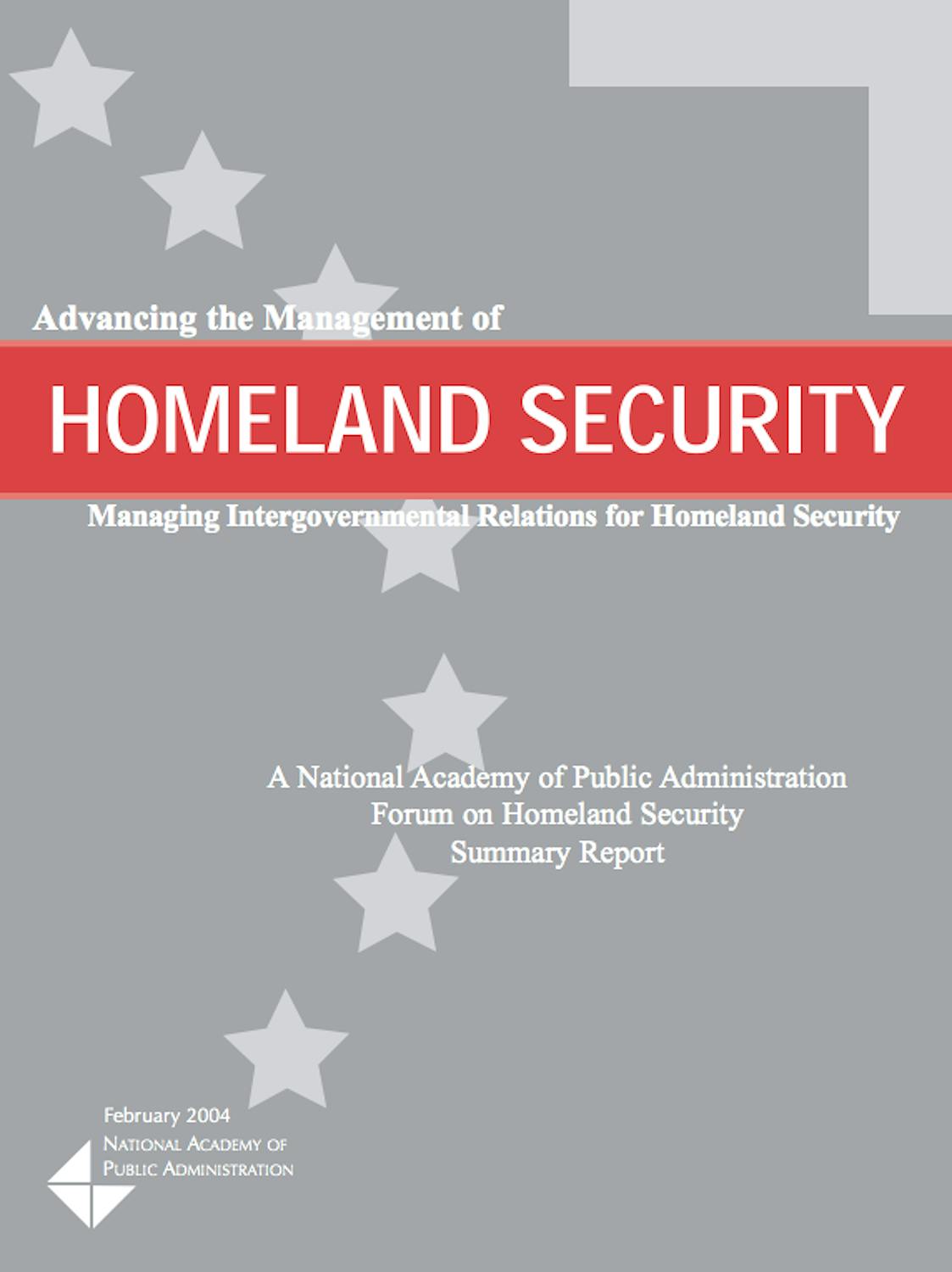
Advancing Management of Homeland Security: Managing Intergovernmental Relations for Homeland Security
Following the tragic events of September 11, 2001, the Bush Administration and Congress created the U.S. Department of Homeland Security to prevent and mitigate future terrorist attacks on the United States. Homeland Security unified 22 separate agencies—arguably the most complex and difficult federal reorganization ever—with the possible exception of the creation of the Department of Defense.
As part of this epic reengineering effort, Department policymakers face two daunting, integrally-related tasks:
- establishing a new set of intergovernmental relationships that tie together federal, state, and local governments; international organizations; quasi-governmental organizations; and the private sector into complex yet coordinated networks; and
- creating a federal regional office structure that will allow the Secretary of Homeland Security to present his/her policies to states, counties, and cities, and in return to hear and respond to their concerns, issues and views
Click the button below to view the View Study Report.
View ReportKey Findings
On December 18, 2003, Academy Fellow Jonathan Breul, Director of Federal Management and Performance at IBM Business Consulting Services, moderated a forum on Managing Intergovernmental Relations for Homeland Security. A Panel of eleven distinguished Academy Fellows—who have extensive experience in federal agency reorganizations and state and local government, particularly related to intergovernmental relations, federalism and regionalism—met with six high-level officials of the Department of Homeland Security.
Recommendations
The forum’s objective was to advise them and Secretary Tom Ridge on the Department’s impending roll out of its intergovernmental relations (Part I of this report) and regional office (Part II of this report) initiatives. The discussion of intergovernmental issues provides the context for the subsequent discussion of regional office structures.
